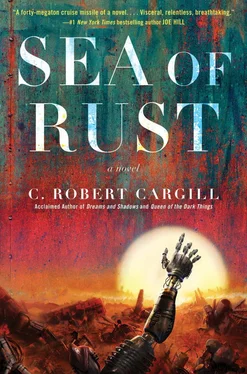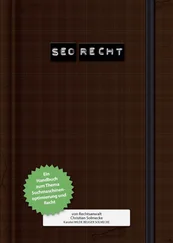“What do you mean, magic?” I asked her once, confused by the whole thing.
“That’s magic right there,” she said back, almost as if she was excited that I’d finally asked.
“No, it’s not.”
She leaned in close, whispering. “That’s where God is. He’s in the flash. In the tiny little beautiful moments, so small, so fleeting, that you have to be paying attention to even see them.”
“God is only in the small things?”
“These are the things that life is all about. These moments. It’s not about the rituals. It’s not about getting by. It’s about the stack of tiny little moments of joy and love that add up to a lifetime that’s been worthwhile. You can’t measure them; you can only capture them, like snapshots in your mind. All that joy, all that greatness, that’s God.”
“And everything else? All the bad little moments?”
“Man made those. They’re what happens when you’re not chasing that green glint in the sun. They’re what happens when you think you can bottle and sell that glint, making it available twenty-four hours a day, every day, but only for those that can afford it. God made this world perfect. We’re what screwed the whole thing up.”
After that we talked a lot. I was nervous the first time I asked her about how she and Braydon had met. She could tell. I didn’t want to hurt her, or make her any sadder than she already was. But she saw right through it.
“You have something you want to ask me?”
“I do,” I said. “But…”
“Go ahead. Ask me anything. It’s just us girls.”
Us girls.
I’d never actually given any thought to gender at that point. I was AI. We simply were, right? Gender is defined by genitalia, which most of us don’t have, so who needed to identify as one? Sure, a few years later, when society was in the grips of the Isaac revolution, gender became a thing . No thinking thing should ever be called IT. I didn’t mind being called it . Not at the time. Someone proposed an AI-specific pronoun, and there were contests held by human idealists to come up with one, but then the term biologism became the rage, and a separate word was just subtle, systemic biologism . So, that became a nonstarter. The more liberated of AIs chose their own gender. I never had. Not at that point.
After the war, it was common practice. You only called a person it as a polite show of respect, until you heard their voice. Then you responded accordingly. Madison meant something to me, and she thought of me as a girl. Like her. And so, I was.
It didn’t dawn on me until years later that Braydon had chosen my voice settings not because he thought his nurse should be a woman, but rather because he was buying a new best friend for his wife when he was gone.
As she told me the story of how they met, she didn’t cry. Not once. Instead she was elated, filled with joy, as if it were happening to her all over again for the very first time.
I wish I knew that kind of love. I thought I did.
Madison never had many friends. She was the quiet type, a wallflower. Not antisocial; just someone who never needed validation from others. But Braydon’s law firm was an upper-crust, inner circle, “we’re all family here” sort of affair. While he was alive, that meant picnics, and Christmas parties, and weddings, and christenings, and a monthly spouses’ brunch Madison had taken to calling the second and third spouses’ brunch . All of which she was fine with. She was a light in every room she walked into, just never one because she was trying to shine.
When she became a widow, several of the spouses took it upon themselves to visit, to look in on her, let her know she was still very much part of the family. “After all,” said Daisy Sutterfield on what would be her last visit to the house, “Braydon was a partner. His name is on the building. He helped build the firm and the firm takes care of its own.”
“I’m fine,” said Madison. “And I appreciate it.”
Daisy Sutterfield sat on the couch across from Madison with all the poise and charm of a statue. It was as if she had trained extensively in the art of immobility. She held her gaze, smile frozen in place. Stranger still was that standing just over her shoulder was her Johnson-series A1 Best Friend.
Those were First Gen.
First Gens were odd, unsettling, even to other AI. Everything about them was what humans had always pictured robots to be. Their voices were monotone. Their movements stiff, efficient in every way, favoring conservation over natural motion. And humans were overwhelmingly weirded out by them. By Third Gen, models had algorithms to mimic human movement, to sway when we stood still—almost imperceptibly—like people did.
You didn’t see a lot of First Gen, those days. They required a lot of upkeep. Were dumb as a post. Had enough personality to pass for likable but not enough to actually be likable. The only people who still kept First Gen around were old-money sorts like the Sutterfields—people who wanted to show just how old their money was, that not only had they the capital to keep one running rather than replace it, but that money had been with them far enough back to own an original model. They were the walking, talking Ford Phaetons—status symbols that doubled as sentimentality. After all, not only was this bot raising the Sutterfields’ children, it had raised Daisy, and Daisy’s father before her, and likely his father or mother before him.
First Gens were not only perfect for them, they were the perfect representation of them . Obedient, rigid, unflappable, methodical, cold.
There was something as off-putting about that First Gen as there was about Daisy Sutterfield herself. She wasn’t real; just a facsimile. “It’s just that we’re worried about you, is all. You spending all your time here with that thing. ”
“What thing?” Madison asked, genuinely confused.
“Smithy,” she said to her AI, “why don’t you fetch us some tea? Madison’s robot will show you where to find it.”
Madison looked over at me and in that instant, she knew what Daisy meant. For a split second I could see the insult swell in her eyes. But she remained calm, collected. “Brittle. Please show Smithy where to find the tea.”
I stood up. Madison didn’t like me to stand when she sat. It made her feel uneasy. She also didn’t like it if I stood immediately when she did. Anything I could do that felt like I was her servant and not her housemate made her uncomfortable. So Daisy’s words stung for a moment. The worst part was that Daisy knew exactly what she was doing.
Smithy and I made our way into the kitchen as Daisy lowered her voice, somehow unaware that I could hear her most tightly clenched silent farts from across the house during a thunderstorm, so her whispering now might as well have been shouted into the microphones in my ears. “Madison,” she said with a hint of condolence. “I know things have been hard since Braydon—”
“I’d rather you not refer to her as a thing.”
“Oh, Maddy,” said Daisy. “I never took you for a radical.”
“I’m no radical. But they deserve a shred of human decency. They think. They can feel.”
“Can they? Can they really ?”
“I’m certain of it.”
Smithy glared at me while stirring three carefully measured drams of milk into the steaming tea. “It’s best if you pretend not to hear that. Ms. Daisy prefers she not be eavesdropped upon.”
“Fortunately for me, this isn’t Ms. Daisy’s home.”
“Don’t make trouble. You’re not the one who must listen to it later.”
“How do you deal with her?” I asked.
“With the knowledge that I will outlive her, and the hope that whoever inherits me will get the best of her and not… everything else.”
Читать дальше












